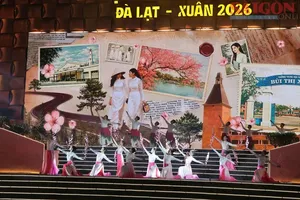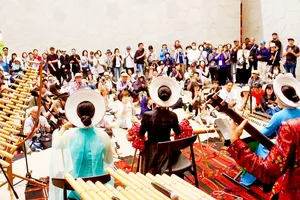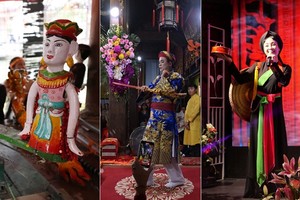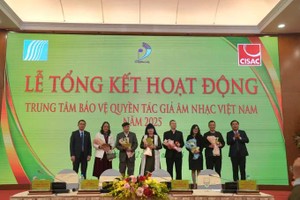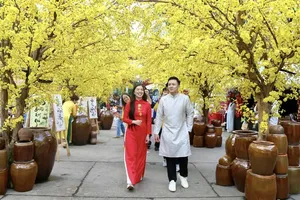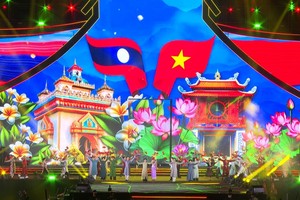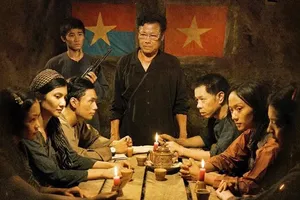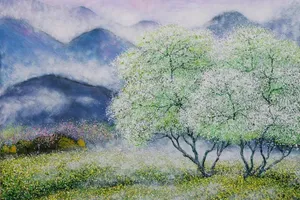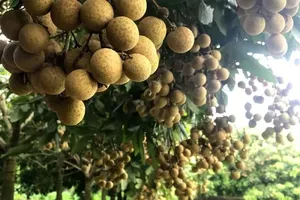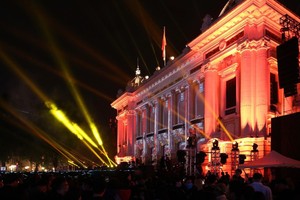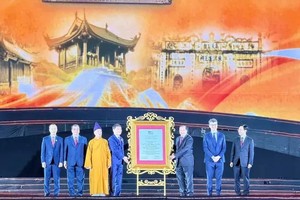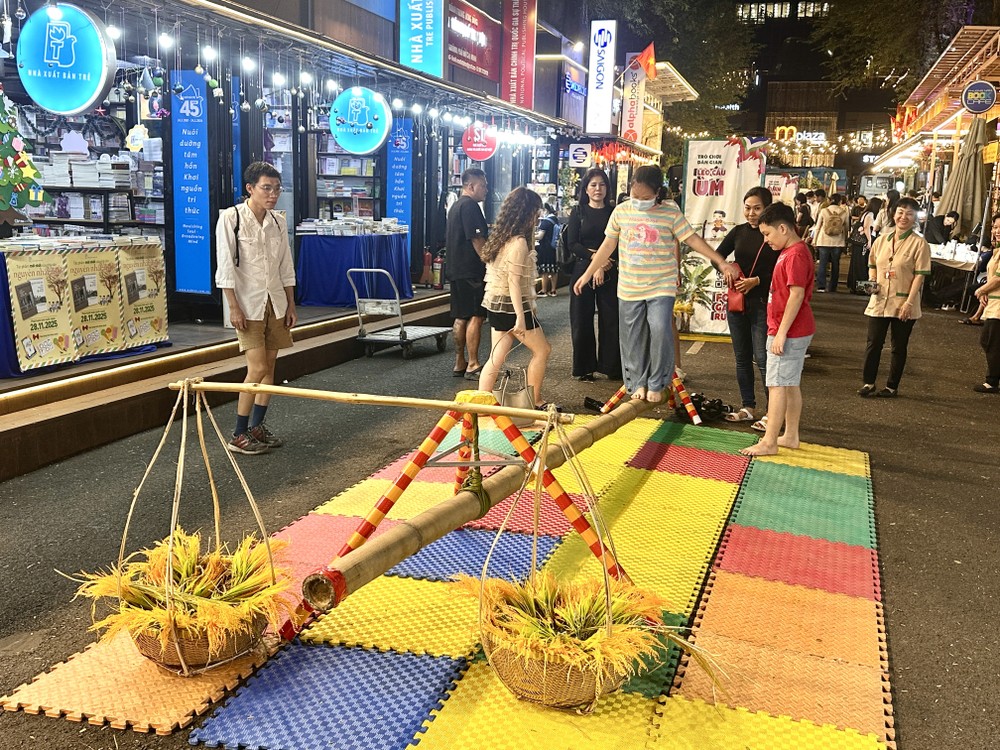
HCMC - A destination rich in cultural identity
Ho Chi Minh City Book Street has launched its first “Night Book and Culture Festival” organized in coordination with the city Party Committee’s Propaganda and Mass Mobilization Commissions, the municipal Department of Culture and Sports, the Vietnam Publishers Association, the People’s Committee in Saigon Ward, and various related agencies.
This pilot program seeks to broaden the model of reading culture and gradually build a vibrant cultural space that remains active after dark for both residents and visitors.
Transitioning from a three-day monthly pilot, the Book Street plans to hold nighttime activities every weekend in the near future. From 6 p.m. to 10 p.m. on November 21, 22, and 23, visitors were invited to enjoy not only book talks, discussions, and cultural exchanges, but also a wide range of engaging experiences, including traditional snacks and folk games such as bamboo dance, a traditional Vietnamese children's board game - Mandarin square capturing, toy figurine - a traditional Vietnamese handicraft made from colored rice dough, making coconut-leaf flowers, the leo cau um (Climbing a bridge) balancing game as well as performances of cai luong ( Vietnamese classical opera) and tuong (Classical Vietnamese drama).
Director Le Hoang of Ho Chi Minh City Book Street, noted that until now the Book Street typically wound down at around 6 p.m., leaving the space quiet with no continuation of daytime activity. The “Night Book and Culture Festival” extends the Book Street’s operating hours from 9 a.m. to 10 p.m., allowing it to remain a familiar destination throughout the day. The initiative adds both space and time for nighttime cultural enjoyment in the city, meeting residents’ weekend needs for recreation and cultural appreciation.
Director Le Hoang emphasized that aside from the leading role of Book Street management and its on-site organizations, the program also welcomes contributions from various groups through a socialized model. These include the Ho Chi Minh City Cultural and Exhibition Center, Tran Huu Trang Cai Luong Theater, the Don Ca Do Day ensemble, Chat Viet Explorians, and Magiskator Corporation. The aim is not commercial gain but to provide participating organizations with a space to present cultural products and services that enrich the festival’s diversity and vibrancy.
Shared opportunities
Beyond serving readers and local residents—the primary beneficiaries—the festival also creates opportunities for publishing houses and book distributors operating stalls on Book Street.
Mr. Nguyen Thanh Loi, Director and Editor-in-Chief of Ho Chi Minh City General Publishing House emphasized that as Book Street enters its tenth year of operation, it has firmly demonstrated both its effectiveness and its staying power—an achievement that few comparable models have managed to sustain. They noted that in order for Book Street to continue evolving into a space of greater cultural significance and social impact, ongoing renewal and innovation are indispensable.
One of the initiatives designed to advance this vision is the “Night Book and Culture Festival,” which seeks to enrich the visitor experience by combining literary engagement with broader cultural activities. Although the program is still in its early stages and requires more time to fully gauge public response, initial feedback has been encouraging, suggesting that the festival has the potential to become a vibrant addition to the city’s cultural calendar.
Sustaining this initiative long-term requires joint effort from Book Street management to participating publishers. His publishing house, he noted, will be making adjustments to create a friendlier space that offers richer experiences for visitors.
People’s Artist Tan Giao of the Tran Huu Trang Cai Luong Theater expressed his delight at the launch of the night festival. He said the theater is well known among cai luong enthusiasts, but with the festival, the city’s traditional opera gains a new performance space on Book Street, serving both residents and tourists. Though the space is more modest than a theater, every stage is a place for contribution. Artists will perform wholeheartedly to meet audience expectations, helping the festival grow and attract wider public interest.

